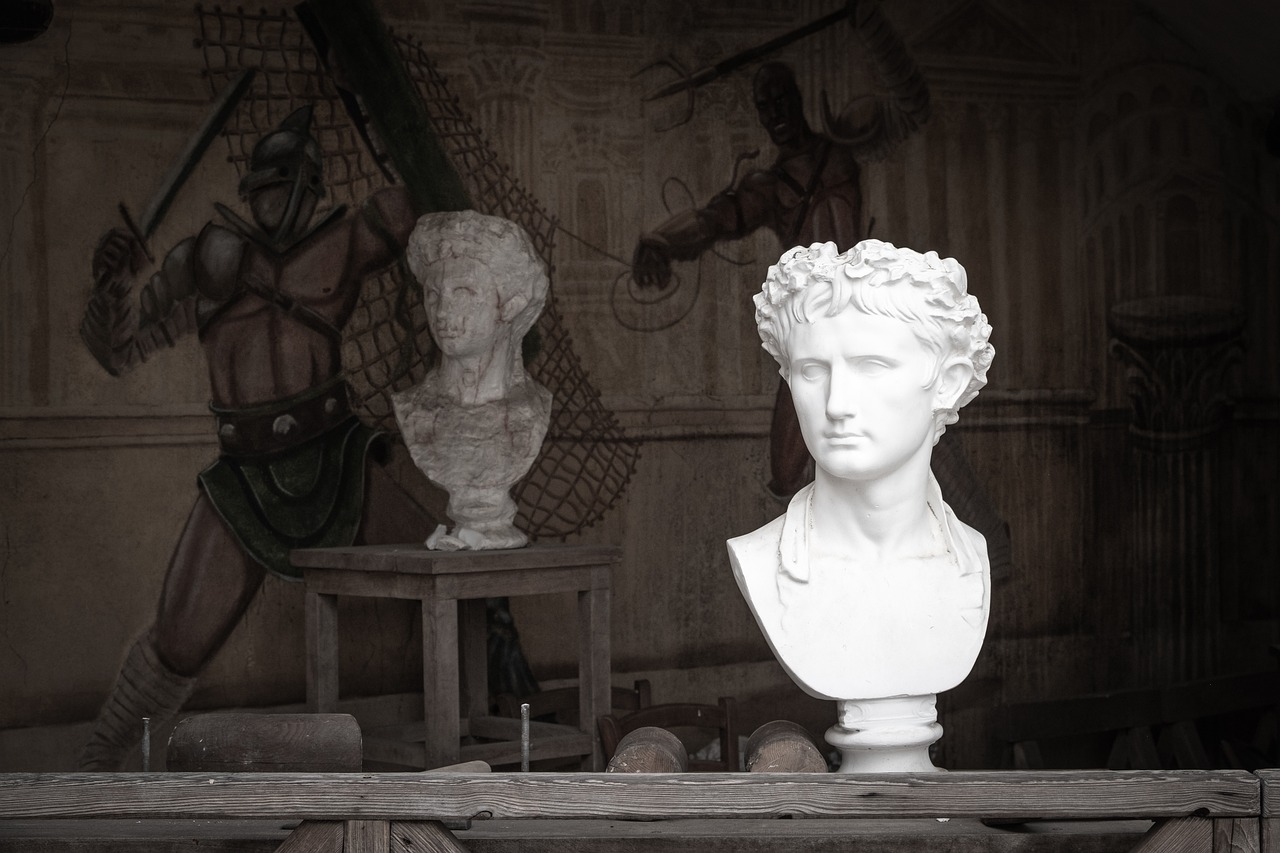Rene Descartes View on Existentialism: An Analysis
This article explores René Descartes' contributions to existentialism, examining his philosophical ideas and their implications on modern thought. We will delve into his key concepts and their relevance in contemporary discussions.
Descartes famously stated, "I think, therefore I am." This foundational idea establishes the significance of self-awareness in understanding existence and identity. At its core, this phrase encapsulates the essence of human consciousness and the undeniable truth of one’s own existence. When we think, we affirm our presence in the world. This self-awareness is not merely an intellectual exercise; it's a profound realization that can lead to deeper existential questions. What does it mean to exist? How do we define our identity? These questions echo through the corridors of philosophical thought, challenging us to scrutinize our beliefs and perceptions.
Descartes' theory of mind-body dualism posits the separation of the mental and physical realms, influencing existentialist thought about consciousness and existence. According to Descartes, the mind is a non-physical substance, distinct from the body. This separation raises intriguing questions about the nature of reality. If the mind and body are separate, how do they interact? This dualism has significant implications for existentialism, which often grapples with the nature of consciousness and the human experience. It suggests that our thoughts and feelings can exist independently of our physical state, opening the door to discussions about the essence of being and the subjective nature of existence.
Descartes' method of systematic doubt serves as a critical tool for existential inquiry. By questioning everything, he aimed to arrive at a foundation of certainty. This process of doubt is not merely a skeptical approach; it's a journey of self-discovery. How often do we take a step back and question our beliefs? This act of doubt can lead us to profound realizations about ourselves and our place in the universe. It’s a bit like peeling an onion—each layer removed brings us closer to the core of our identity. In the search for meaning, doubt can be both a challenge and a catalyst, pushing us to explore the depths of our consciousness.
The process of questioning one's beliefs is essential for developing a coherent self-identity. Descartes' skepticism contributes to modern existentialist views on personal identity by emphasizing the need for self-examination. In a world filled with distractions and societal expectations, how do we remain true to ourselves? By engaging in a dialogue with our own thoughts and doubts, we can forge a unique identity that reflects our true essence. This journey is not always comfortable; it can be unsettling to confront the uncertainties of our existence. However, it is through this discomfort that we can cultivate a richer, more authentic self.
Doubt can also lead to existential anxiety. The discomfort associated with searching for meaning in an uncertain world is a theme that resonates deeply with both Descartes and modern existentialists. This anxiety often stems from the realization that our existence is fleeting and that we must navigate a complex landscape of choices and consequences. Descartes' ideas help frame this discomfort, suggesting that doubt is not something to be feared but embraced. It serves as a reminder of our humanity and the inherent struggle for understanding in an unpredictable world.
In existentialism, the concept that existence precedes essence contrasts with Cartesian thought. While Descartes posits that our essence is tied to our rational thought, existentialists argue that we first exist and then create our essence through actions and choices. This fundamental difference highlights the tension between rationalism and existentialism. Can we truly define ourselves through thought alone, or is it our lived experiences that shape who we are? This question remains central to existential discourse, inviting us to reflect on the relationship between our existence and our identity.
Descartes' pursuit of certainty is a central theme in his philosophy. His quest for indubitable knowledge impacts existentialist thought and the quest for meaning in life. In a world rife with ambiguity, the desire for certainty can be both a driving force and a source of frustration. How do we navigate the complexities of existence while yearning for clarity? Descartes' rigorous methods inspire a search for truth, yet they also highlight the limitations of human understanding. This paradox is at the heart of existentialist thought, prompting us to embrace uncertainty as part of the human experience.
This section contrasts Descartes' rationalist approach with existentialism's emphasis on subjective experience, highlighting the tensions and intersections between these philosophical traditions. While Descartes champions reason as the path to knowledge, existentialists argue that personal experience and emotion are equally valid sources of understanding. This clash of perspectives invites us to consider the richness of human experience—can we truly separate reason from emotion, or do they coexist in a delicate balance? The interplay between rational thought and existential feeling continues to shape philosophical discussions today.
Descartes' influence extends beyond his time, shaping modern philosophical discourse. His ideas continue to resonate within contemporary existentialist frameworks and debates. From the existentialists' focus on individual experience to the ongoing discussions about the nature of consciousness, Descartes' legacy is evident in the questions we still grapple with today. His challenge to think critically and doubt our assumptions fosters a vibrant intellectual landscape where existential inquiry thrives.
- What is the main idea of Descartes' philosophy? Descartes' philosophy centers around the idea of doubt and the quest for certainty, famously encapsulated in the phrase "I think, therefore I am."
- How does Descartes influence existentialism? Descartes' emphasis on self-awareness and the nature of existence laid the groundwork for later existentialist thinkers who expanded on these themes.
- What is mind-body dualism? Mind-body dualism is the concept that the mind and body are distinct entities, a theory proposed by Descartes that influences discussions on consciousness.
- What role does doubt play in existentialism? Doubt serves as a tool for self-discovery and questioning beliefs, which is essential for developing a coherent self-identity.

The Essence of Existence
When we dive into the depths of philosophy, we often stumble upon profound statements that shake the very foundation of our understanding. One such statement is made by the French philosopher René Descartes, who boldly proclaimed, "I think, therefore I am." This simple yet powerful assertion encapsulates the essence of existence and self-awareness. It suggests that the mere act of thinking is proof of our existence. But what does this really mean for us as individuals navigating through life?
Descartes' reasoning invites us to reflect on our own consciousness. It raises the question: Are we truly aware of our existence, or do we merely exist in a state of unawareness? This notion of self-awareness is critical. It compels us to examine not just our thoughts but also the nature of our being. In a world filled with distractions, how often do we pause to consider the significance of our thoughts and feelings? The essence of existence is not just about being alive; it’s about the conscious experience of that life.
The implications of Descartes' philosophy extend beyond mere existence. They touch on our identity and how we perceive ourselves in relation to the world. To fully grasp the essence of existence, we must engage in a process of introspection. This involves asking ourselves essential questions, such as:
- What defines my identity?
- How do my thoughts shape my reality?
- In what ways do I connect with others and the world around me?
Through this reflective journey, we can uncover layers of our identity that may have been obscured by societal expectations or personal fears. Understanding the essence of our existence requires us to confront our thoughts and emotions honestly. It’s like peeling an onion; each layer reveals something deeper about who we are. The deeper we go, the more we discover about our motivations, desires, and ultimately, the meaning we attribute to our lives.
Moreover, Descartes' assertion challenges us to recognize the importance of doubt in our quest for understanding. By questioning our beliefs and assumptions, we can arrive at a more authentic self. This process is not without its challenges, as it often leads us to confront uncomfortable truths about ourselves. However, it is precisely through this discomfort that we can achieve a clearer understanding of our existence.
In conclusion, the essence of existence, as articulated by Descartes, serves as a powerful reminder of the importance of self-awareness and introspection. It urges us to think deeply about our place in the universe and the thoughts that define us. As we navigate through life, let us embrace the challenge of questioning our beliefs, for it is through this inquiry that we can truly understand who we are and what it means to exist.

I think, therefore I am.
This article explores René Descartes' contributions to existentialism, examining his philosophical ideas and their implications on modern thought. We will delve into his key concepts and their relevance in contemporary discussions.
Descartes famously stated, "I think, therefore I am." This foundational idea establishes the significance of self-awareness in understanding existence and identity. At its core, this statement emphasizes that the very act of thinking is proof of one's existence. It suggests that consciousness is not just a passive state but an active process that defines who we are. By asserting that thought is the essence of existence, Descartes invites us to reflect on our own awareness and the nature of our being. In a world filled with distractions and complexities, this concept reminds us that our ability to question, contemplate, and engage with our thoughts is what truly makes us human.
Consider this: when you ponder your own thoughts, you are engaging in a profound act of self-acknowledgment. This self-awareness is not merely an abstract idea; it's a tangible aspect of our daily lives. Whether you are contemplating your place in the universe or simply deciding what to have for dinner, the act of thinking signifies your existence. In a sense, your thoughts are the threads that weave the fabric of your identity, connecting your past experiences with your present reality and future aspirations.
Moreover, Descartes’ assertion serves as a launching pad for existential inquiry. It raises questions about the nature of existence itself. Are we defined solely by our thoughts, or do our actions and interactions also play a critical role? This leads us to consider the interplay between thought and action, and how they shape our understanding of self. The existentialists who followed Descartes would further explore these themes, questioning the implications of existence without a predefined essence.
In essence, Descartes’ declaration is not just a philosophical statement; it is a call to engage with our own consciousness. It challenges us to embrace our thoughts as a means of navigating the complexities of existence. Just as a painter uses a brush to create a masterpiece, we use our thoughts to shape our identities. The journey of self-discovery begins with the recognition that to think is to exist, and from this realization, we can delve deeper into the exploration of our own lives and the world around us.
This subheading discusses Descartes' theory of mind-body dualism, which posits the separation of the mental and physical realms, influencing existentialist thought about consciousness and existence.
Descartes' method of systematic doubt serves as a critical tool for existential inquiry. This section analyzes how doubt leads to certainty and self-discovery in the search for meaning.
The process of questioning one's beliefs is essential for developing a coherent self-identity. This subsection examines how Descartes' skepticism contributes to modern existentialist views on personal identity.
Doubt can also lead to existential anxiety. This part discusses how Descartes' ideas help frame the discomfort associated with the search for meaning in an uncertain world.
In existentialism, the concept that existence precedes essence contrasts with Cartesian thought. This section explores how Descartes' views challenge or complement this foundational existentialist principle.
Descartes' pursuit of certainty is a central theme in his philosophy. This subheading examines how this quest impacts existentialist thought and the quest for meaning in life.
This section contrasts Descartes' rationalist approach with existentialism's emphasis on subjective experience, highlighting the tensions and intersections between these philosophical traditions.
Descartes' influence extends beyond his time, shaping modern philosophical discourse. This part discusses how his ideas continue to resonate within contemporary existentialist frameworks and debates.
- What does "I think, therefore I am" mean? This phrase signifies that the act of thinking is proof of one's existence, highlighting the importance of self-awareness.
- How did Descartes influence existentialism? Descartes' emphasis on doubt and self-awareness laid the groundwork for later existential thinkers to explore the nature of existence and identity.
- What is mind-body dualism? Descartes' theory that the mind and body are separate entities, influencing discussions on consciousness and existence in existentialism.

This section will explore how this foundational idea establishes the significance of self-awareness in understanding existence and identity.
Descartes famously stated, "I think, therefore I am." This powerful declaration is more than just a catchy phrase; it serves as a cornerstone for understanding the intricate relationship between self-awareness, existence, and identity. By asserting that the very act of thinking is evidence of one's existence, Descartes elevates the role of consciousness in the existential conversation. Imagine standing in front of a mirror, not only seeing your reflection but also contemplating the thoughts that define who you are. This moment of self-awareness is what Descartes emphasizes—it is the key to unlocking the door to understanding our own existence.
Self-awareness, as highlighted by Descartes, is crucial for grasping the essence of our identity. When we engage in reflection, we are not merely observing our thoughts; we are actively participating in the process of defining ourselves. This internal dialogue allows us to question our beliefs, values, and motivations. For instance, consider how often we find ourselves asking, "Who am I?" or "What do I truly believe?" These questions stem from a desire to understand our place in the world, showcasing the significance of self-awareness in shaping our identities.
Furthermore, this foundational idea leads us to recognize that existence is not a passive state but an active endeavor. It suggests that we are not merely products of our environment or circumstances; rather, we have the power to shape our own identities through conscious thought. This perspective aligns with the existentialist view that emphasizes personal responsibility and the quest for meaning. In essence, Descartes invites us to embrace our ability to think critically and reflectively, which in turn empowers us to carve out our own paths in life.
To illustrate this connection further, let’s consider the implications of self-awareness in different contexts:
| Context | Implication of Self-Awareness |
|---|---|
| Personal Growth | Self-awareness fosters introspection, leading to personal development. |
| Relationships | Understanding oneself enhances empathy and communication with others. |
| Decision Making | Awareness of one’s values and beliefs aids in making informed choices. |
In summary, Descartes’ assertion not only lays the groundwork for existential thought but also emphasizes the importance of self-awareness in understanding our existence and identity. By recognizing that our thoughts affirm our being, we open ourselves to a deeper exploration of who we are and what we can become. This journey of self-discovery is not just philosophical; it is profoundly personal, inviting each of us to engage in the continuous process of defining our essence through our experiences and reflections.
- What does "I think, therefore I am" mean? This phrase suggests that the act of thinking is proof of one's existence and consciousness.
- How does self-awareness relate to identity? Self-awareness allows individuals to reflect on their thoughts and beliefs, which helps in shaping their identities.
- Why is doubt important in Descartes' philosophy? Doubt serves as a tool for questioning beliefs, leading to greater certainty and self-discovery.

Mind-Body Dualism
René Descartes' theory of is a cornerstone of his philosophical framework and has had a profound impact on existentialist thought. At its core, dualism posits that the mind and body are fundamentally distinct entities. This separation raises intriguing questions about the nature of consciousness and existence. Descartes famously declared, "Cogito, ergo sum" or "I think, therefore I am," which emphasizes the primacy of thought and consciousness in defining existence. This idea invites us to ponder: if our thoughts can exist independently of our physical bodies, what does that mean for our understanding of self?
In this dualistic view, the mind is seen as a non-physical substance that interacts with the physical body. This leads to several implications for existentialist philosophy. For instance, existentialists often grapple with the idea of consciousness as a defining feature of human existence. They argue that our subjective experiences, emotions, and thoughts shape our reality, which aligns with Descartes' assertion of the mind's primacy. However, this raises an important question: can we fully understand the essence of our being if we separate our thoughts from our physical experiences?
To illustrate the complexities of mind-body dualism, consider the following table that summarizes the key differences between the two realms:
| Aspect | Mind | Body |
|---|---|---|
| Nature | Non-physical | Physical |
| Function | Thinking, reasoning, feeling | Movement, sensation, biological processes |
| Interaction | Influences bodily actions | Affects mental states |
This dualistic framework has led to ongoing debates about the nature of existence. For instance, how does the mind influence the body, and vice versa? Existentialists often argue that our physical experiences shape our consciousness. They emphasize that while Descartes laid the groundwork for understanding the mind's role in existence, it is essential to consider how our physical reality impacts our thoughts and feelings. This interplay raises the stakes in our quest for meaning and understanding in a world that often feels chaotic and unpredictable.
Moreover, the implications of mind-body dualism extend beyond philosophical discussions; they resonate deeply in our everyday lives. Think about moments of intense emotion, such as fear or joy. These feelings manifest physically—our hearts race, our palms sweat, or we feel a rush of energy. Such experiences highlight the interconnectedness of mind and body, suggesting that while they may be distinct, they are also profoundly intertwined. This realization leads us to a crucial point: understanding ourselves requires an appreciation of both our mental and physical experiences.
In conclusion, Descartes' mind-body dualism challenges us to explore the depths of our existence. It compels us to ask difficult questions about the nature of our being and the relationship between our thoughts and our physical selves. As we navigate through life, embracing both realms may lead to a more holistic understanding of what it means to exist. So, the next time you find yourself lost in thought, remember that your body is just as much a part of your existence as your mind.
- What is mind-body dualism? Mind-body dualism is the philosophical concept that the mind and body are two distinct entities that interact with each other.
- How does dualism relate to existentialism? Dualism influences existentialist thought by emphasizing the importance of consciousness and subjective experience in understanding existence.
- Can the mind exist without the body? According to Descartes, the mind can exist independently, but existentialists argue that physical experiences are crucial to shaping our consciousness.
- What are some implications of mind-body dualism? It raises questions about the nature of existence, the interplay between thought and physical experience, and the development of self-identity.

The Role of Doubt
Doubt is a powerful catalyst for existential inquiry, and no one articulated this better than René Descartes. His method of systematic doubt was not merely a philosophical exercise; it was a profound journey into the depths of human consciousness. When Descartes famously declared, "Cogito, ergo sum" or "I think, therefore I am," he was not just establishing a foundation for knowledge but also embracing the uncertainty that surrounds existence itself. This idea invites us to question everything we know, pushing us to strip away the layers of assumption and belief that cloud our understanding of reality.
At its core, doubt serves as a tool for self-discovery. It compels us to confront the uncomfortable truths about ourselves and the world around us. When we doubt, we embark on a quest for clarity, seeking to unravel the complexities of our identities and beliefs. This process can be likened to peeling an onion; each layer we remove brings us closer to the core of our being, but it can also bring tears to our eyes. The act of questioning our beliefs is not just an intellectual exercise, but a deeply personal journey that shapes our understanding of who we are.
Moreover, Descartes’ skepticism has significant implications for modern existentialist thought. By embracing doubt, we can explore fundamental questions about existence, purpose, and meaning. This exploration often leads to a confrontation with our own limitations and uncertainties. The discomfort that arises from this process, often termed existential anxiety, is a natural byproduct of seeking meaning in an unpredictable world. It raises questions such as:
- What does it mean to truly exist?
- How do we find meaning in a seemingly indifferent universe?
- Can we ever attain certainty in our beliefs?
In essence, doubt is not merely a negative force; it is essential for growth and understanding. It encourages us to challenge the status quo and to seek deeper truths about our existence. As we navigate through life, the questions that arise from doubt can lead us to richer, more meaningful experiences. Descartes' approach reminds us that embracing uncertainty is a vital step in the journey toward self-awareness and understanding.
In summary, doubt is a double-edged sword in the realm of existentialism. While it can lead to discomfort and anxiety, it also opens the door to profound insights and self-discovery. Descartes’ legacy in this regard is invaluable, as it encourages us to embrace our uncertainties and to continually seek understanding in the ever-complex tapestry of life.
- What is the significance of doubt in philosophy?
Doubt serves as a critical tool for questioning established beliefs and seeking deeper truths about existence. - How does Descartes' method of doubt influence modern existentialism?
Descartes' skepticism encourages individuals to confront their uncertainties and explore the complexities of identity and meaning. - Can doubt lead to personal growth?
Yes, by challenging our beliefs and assumptions, doubt can facilitate self-discovery and foster a more profound understanding of ourselves.

Implications for Self-Identity
When we dive into the murky waters of self-identity, we often find ourselves grappling with questions that can be both daunting and enlightening. Descartes' skepticism, particularly his famous declaration "I think, therefore I am," serves as a beacon in this exploration. By questioning everything—our beliefs, perceptions, and even our existence—Descartes opens the door to a profound journey of self-discovery. This journey is not merely academic; it’s deeply personal, affecting how we perceive ourselves and our place in the world.
At its core, the process of doubt that Descartes champions is essential for constructing a coherent sense of self. It encourages us to peel back the layers of our identities, revealing the core of who we are. Just like an artist chiseling away at a block of marble, we must sometimes remove the extraneous beliefs and societal expectations that have accumulated over time. In this light, self-identity becomes a dynamic process rather than a static one. It’s about actively engaging with our thoughts and experiences, and through this engagement, we forge a stronger, more authentic self.
Moreover, Descartes' method of systematic doubt leads us to question the very foundations of our identities. Are we simply products of our environments, or do we possess an intrinsic essence that defines us? This inquiry can be unsettling, yet it is incredibly liberating. By recognizing that our identities are not fixed, we can embrace change and growth. This realization aligns with modern existentialist thought, which posits that our essence is shaped by our choices and experiences rather than predetermined by our nature.
However, this quest for self-identity is not without its challenges. As we navigate through layers of doubt and uncertainty, we may encounter feelings of existential anxiety. This discomfort arises from the realization that our identities are fluid and subject to change, which can be both exhilarating and terrifying. In this context, Descartes’ emphasis on doubt becomes a double-edged sword; while it can lead to greater self-awareness, it can also plunge us into a state of confusion about who we truly are.
In conclusion, the implications of Descartes' skepticism for self-identity are profound. They invite us to engage in a continuous process of self-examination and reflection. While this journey can be fraught with anxiety and uncertainty, it ultimately leads to a richer understanding of ourselves. By embracing doubt, we can cultivate a more authentic identity, one that is resilient and adaptable in the face of life’s challenges. So, the next time you find yourself questioning your beliefs or identity, remember that this is not just a philosophical exercise; it's a vital part of being human.
- What is the significance of "I think, therefore I am"? This statement emphasizes the importance of self-awareness and consciousness in establishing one's existence.
- How does doubt influence self-identity? Doubt encourages individuals to question their beliefs, leading to a more coherent and authentic sense of self.
- Can existential anxiety be beneficial? Yes, while it can be uncomfortable, existential anxiety can prompt deeper self-reflection and personal growth.
- How do Descartes' ideas relate to modern existentialism? His emphasis on doubt and self-awareness complements existentialist views on identity and existence.

Existential Anxiety
Existential anxiety is a concept that resonates deeply within the philosophical landscape shaped by René Descartes. As we grapple with the fundamental questions of life—Who am I? What is my purpose?—the weight of uncertainty can feel overwhelming. Descartes' assertion that "I think, therefore I am" is not just a declaration of existence, but a call to confront the very essence of our being. This confrontation often leads to a state of existential anxiety, where the individual is acutely aware of their own existence and the inherent ambiguities that accompany it.
At its core, existential anxiety stems from the realization that our lives are not predetermined; instead, we are thrust into a world filled with choices and responsibilities. This realization can be both liberating and terrifying. Imagine standing at the edge of a vast ocean, the waves crashing around you—each wave representing a choice, a possibility. The fear of making the wrong choice can paralyze us, leaving us grappling with the profound implications of our freedom. In this way, Descartes' philosophical framework serves as a backdrop for understanding the complexities of human existence.
Moreover, Descartes' method of systematic doubt plays a pivotal role in this discourse. By questioning everything, including our own thoughts and beliefs, we are led down a path of introspection. This process can ignite feelings of anxiety as we confront the potential meaninglessness of our existence. Doubt becomes a double-edged sword; while it is a tool for clarity, it also opens the door to uncertainty and fear. In this context, existential anxiety is not merely a symptom of doubt but a profound aspect of the human condition.
Consider the following aspects of existential anxiety as they relate to Descartes' philosophy:
- Awareness of Mortality: The recognition that life is finite can trigger profound anxiety. Descartes, through his emphasis on rational thought, encourages us to confront our mortality, prompting us to seek meaning in the face of inevitable death.
- Isolation in Existence: The feeling of being alone in our thoughts and experiences can amplify existential anxiety. Descartes' focus on individual consciousness highlights this isolation, as we realize that our subjective experiences are uniquely our own.
- The Burden of Choice: With freedom comes the weight of choice. Descartes' rationalist approach implicitly suggests that we have the power to shape our destinies, which can lead to anxiety about making the 'right' decisions.
In summary, existential anxiety is intricately woven into the fabric of Descartes' philosophy. It challenges us to confront our existence, question our beliefs, and ultimately seek out a personal sense of meaning. While this journey may be fraught with discomfort, it is also a path toward self-discovery and authenticity. Embracing this anxiety can lead to a richer understanding of ourselves and our place in the world. As we navigate these turbulent waters, we can find solace in the knowledge that we are not alone in our struggles; rather, we are part of a shared human experience that transcends time and space.
- What is existential anxiety? Existential anxiety refers to the feelings of unease and dread that arise from confronting the inherent uncertainties of life, such as the search for meaning and the awareness of mortality.
- How does Descartes contribute to our understanding of existential anxiety? Descartes' emphasis on doubt and individual consciousness encourages us to question our beliefs, which can lead to both clarity and anxiety about our existence.
- Can existential anxiety be beneficial? Yes, while it can be uncomfortable, existential anxiety can also promote self-reflection and personal growth, pushing individuals to seek deeper meaning in their lives.

Existence Precedes Essence
In the realm of existentialism, the phrase “existence precedes essence” serves as a cornerstone principle that starkly contrasts with the Cartesian view of existence. While René Descartes posited that the act of thinking establishes one's existence—I think, therefore I am—existentialists argue that individuals are born without any predetermined essence, and it is through their actions and choices that they define who they are. This fundamental divergence raises intriguing questions about identity, purpose, and the nature of being itself.
To put it simply, for existentialists like Jean-Paul Sartre, existence is a blank slate. Just imagine a canvas that is waiting for the artist to bring it to life with color and form. In this analogy, the artist represents the individual, and the choices they make are the brush strokes that shape their identity. This perspective emphasizes the profound responsibility that comes with freedom: since individuals create their essence, they must grapple with the weight of their choices and the implications of their actions.
Descartes’ philosophical framework, on the other hand, suggests that essence—defined by rational thought and the existence of the mind—precedes existence. This leads to a more deterministic view of identity, where individuals are categorized based on intrinsic qualities. The Cartesian model implies that there is a fixed nature to humanity that can be understood through reason, while existentialists vehemently argue that existence is chaotic and fluid, shaped by the experiences and decisions of each individual.
To further illustrate this divergence, consider the following comparison:
| Aspect | Descartes’ View | Existentialist View |
|---|---|---|
| Nature of Existence | Fixed essence precedes existence | Existence is primary; essence is created |
| Identity Formation | Defined by rational thought | Defined by individual choices |
| Freedom | Limited by rational frameworks | Emphasizes radical freedom and responsibility |
This table highlights the contrasting views on existence and identity, showcasing how Descartes' rationalism and existentialism offer fundamentally different lenses through which to understand what it means to be human. While Descartes provides a structured approach, existentialism invites a more fluid and dynamic interpretation of life.
Ultimately, the debate between existence and essence invites us to reflect on our own lives. Are we merely products of our thoughts and predetermined natures, or do we have the power to shape our identities through our choices? This question resonates deeply in a world that often feels chaotic and uncertain, where the search for meaning becomes a personal quest rather than a universal truth.
In conclusion, the existentialist assertion that existence precedes essence challenges us to embrace our freedom and responsibility. It encourages us to live authentically, recognizing that we are not bound by any preordained essence but are instead the architects of our own identities. This notion can be both liberating and daunting, as it places the onus of self-definition squarely on our shoulders.

The Search for Certainty
René Descartes' relentless pursuit of certainty is one of the cornerstones of his philosophical framework. His quest can be likened to a detective on a mission, sifting through layers of doubt to uncover the elusive truth that lies beneath. In a world filled with uncertainty, Descartes sought to establish a foundation upon which knowledge could securely rest. This quest for certainty is not merely an intellectual exercise; it resonates deeply with the existentialist's search for meaning in life. After all, how can one find purpose without first understanding the essence of existence?
At the heart of Descartes' philosophy lies his famous declaration, "Cogito, ergo sum" or "I think, therefore I am." This statement serves as a beacon of certainty amidst the fog of doubt. By asserting that the very act of thinking is proof of existence, Descartes provides a solid starting point for epistemological inquiry. However, this raises a critical question: if our thoughts are the only things we can be absolutely sure of, what does that mean for our understanding of the world around us?
Descartes' method of systematic doubt—where he questioned everything that could possibly be doubted—was revolutionary. It was as if he was peeling back the layers of an onion, revealing the core of what could be known. This approach not only emphasizes the importance of skepticism in the search for truth but also aligns with existentialist themes of self-discovery. The existentialists argue that in confronting our doubts and uncertainties, we can carve out a path toward authentic existence.
But what does this mean for the modern individual? In today's fast-paced, ever-changing world, many find themselves grappling with existential questions that echo Descartes' inquiries. The quest for certainty becomes a personal journey, filled with moments of clarity and confusion. Here are some key implications of Descartes' search for certainty in the context of contemporary existential thought:
- Self-Reflection: Engaging in introspection allows individuals to confront their beliefs and values, much like Descartes did.
- Questioning Reality: The ability to question one's perceptions can lead to a deeper understanding of existence.
- Embracing Uncertainty: Accepting that some questions may remain unanswered can be liberating, fostering personal growth and resilience.
In essence, Descartes' search for certainty is a powerful reminder that the journey toward understanding is as important as the destination. It encourages us to embrace our doubts and uncertainties, transforming them into stepping stones for personal and philosophical exploration. By doing so, we may find not only the answers we seek but also a deeper connection to our own existence.
- What is the significance of "I think, therefore I am"? This phrase emphasizes self-awareness as the foundation of knowledge and existence.
- How does Descartes' method of doubt relate to existentialism? His systematic questioning encourages individuals to confront their beliefs, a key theme in existentialist philosophy.
- Can certainty be achieved in modern life? While complete certainty may be elusive, the journey of self-discovery can lead to personal clarity and meaning.

Rationalism vs. Existentialism
When we dive into the philosophical waters of Rationalism and Existentialism, we find ourselves navigating through two distinct yet interconnected realms of thought. At the heart of Rationalism lies the belief that reason is the primary source of knowledge. Think of it as a sturdy ship, sailing through the sea of logic and deduction, guided by the stars of mathematical certainty. René Descartes, the poster child of Rationalism, famously championed this approach, asserting that the mind's capacity to think and reason is what defines our very existence.
On the flip side, we have Existentialism, a philosophical movement that emphasizes individual experience, freedom, and the inherent absurdity of life. If Rationalism is a ship navigating through clear waters, Existentialism is more like a small boat adrift, bobbing in unpredictable waves, where the journey is often fraught with uncertainty and self-discovery. Existentialists argue that the essence of our lives is not predetermined but is something we must create for ourselves through our choices and actions.
This stark contrast raises a compelling question: Can these two philosophical approaches coexist, or are they fundamentally at odds? To explore this, we can consider a few key differences:
| Aspect | Rationalism | Existentialism |
|---|---|---|
| Source of Knowledge | Reason and intellect | Individual experience and choice |
| View of Existence | Objective reality | Subjective reality |
| Nature of Truth | Universal and absolute | Relative and personal |
Rationalists like Descartes seek to establish a foundation of knowledge that is indisputable, often relying on mathematical principles and logical deduction. In contrast, existentialists like Jean-Paul Sartre argue that life is inherently meaningless, and it is up to each individual to forge their own meaning through authentic experiences. This divergence can lead to a fascinating dialogue between the two schools of thought.
For instance, while Descartes might argue that through reason we can arrive at a universal truth, existentialists would counter that such truths are limited by personal perspective and emotional experience. In this way, Rationalism can sometimes feel like a straightjacket, constraining the fluidity of human experience, while Existentialism embraces the chaos and uncertainty, celebrating the freedom to choose. This interplay invites us to question the very nature of our existence: Are we mere products of reason, or do we possess the freedom to shape our own destinies?
Ultimately, the tension between Rationalism and Existentialism enriches philosophical discourse. It challenges us to find a balance between the clarity of reason and the depth of personal experience. As we reflect on these contrasting views, we might discover that the journey of understanding is as important as the destination itself.
- What is the main difference between Rationalism and Existentialism?
Rationalism emphasizes reason as the primary source of knowledge, while Existentialism focuses on individual experience and the creation of meaning. - How did Descartes influence Existentialism?
Descartes' emphasis on doubt and self-awareness laid the groundwork for later existentialist thinkers who explored the nature of existence and identity. - Can Rationalism and Existentialism coexist?
While they have fundamental differences, the dialogue between the two can lead to a richer understanding of human existence and knowledge.

Legacy in Modern Philosophy
René Descartes' impact on modern philosophy is nothing short of monumental. His ideas have woven themselves into the very fabric of philosophical discourse, influencing countless thinkers and shaping the trajectory of Western thought. When we talk about the legacy of Descartes, we’re not just discussing a man who lived in the 17th century; we're exploring a vast intellectual landscape that he helped to create. His assertion, "I think, therefore I am," serves as a cornerstone for discussions about consciousness, identity, and existence. This simple yet profound statement has sparked debates across generations, making Descartes a pivotal figure in the transition from medieval scholasticism to modern philosophy.
One of the most significant aspects of Descartes' legacy is his method of systematic doubt, which has become a foundational tool for modern philosophical inquiry. By questioning everything, Descartes set the stage for a new way of thinking—one that prioritizes skepticism and critical analysis. This approach has encouraged philosophers to dig deeper into the nature of reality and existence, leading to a rich tapestry of existential thought. For instance, existentialists like Jean-Paul Sartre and Martin Heidegger have drawn inspiration from Descartes, even as they diverged from his ideas. They embraced the notion of doubt but took it further, exploring the implications of human freedom and the absurdity of existence.
Moreover, Descartes' dualism—the separation of mind and body—has had lasting implications in various fields, including psychology, neuroscience, and even artificial intelligence. His belief that the mind is distinct from the body has led to ongoing debates about consciousness and the nature of self. Today, as we delve into questions about what it means to be human, Descartes' legacy looms large. Philosophers and scientists alike grapple with the implications of his work, often returning to his core ideas as they explore the boundaries of human experience.
To illustrate the enduring influence of Descartes, consider the following table that outlines key philosophical movements and thinkers that have been shaped by his ideas:
| Philosophical Movement | Key Thinkers | Influence of Descartes |
|---|---|---|
| Rationalism | Baruch Spinoza, Gottfried Wilhelm Leibniz | Emphasis on reason as the primary source of knowledge |
| Empiricism | John Locke, David Hume | Reaction to Cartesian rationalism, focusing on sensory experience |
| Existentialism | Jean-Paul Sartre, Simone de Beauvoir | Exploration of existence and subjective experience |
| Phenomenology | Edmund Husserl, Maurice Merleau-Ponty | Focus on consciousness and the lived experience |
In conclusion, Descartes' legacy is not just a historical footnote; it’s a living, breathing part of modern philosophical inquiry. His ideas continue to challenge and inspire, prompting new generations of thinkers to explore the depths of human existence. As we navigate through the complexities of modern life, the questions Descartes raised about certainty, identity, and the nature of reality remain as relevant as ever. His work serves as a reminder that the pursuit of knowledge is an ongoing journey, one that invites us to question, explore, and ultimately understand our place in the universe.
- What is the significance of Descartes' statement "I think, therefore I am"?
This statement underscores the importance of self-awareness and consciousness in defining existence. - How did Descartes influence existentialist thought?
His method of doubt and focus on individual consciousness paved the way for existentialists to explore themes of freedom and identity. - What is mind-body dualism and why is it important?
This concept posits that the mind and body are distinct entities, influencing discussions in philosophy, psychology, and neuroscience. - How do modern philosophers view Descartes' legacy?
Many see him as a foundational figure whose ideas continue to resonate in contemporary philosophical debates.
Frequently Asked Questions
- What is René Descartes' famous statement, and why is it significant?
René Descartes famously stated, "I think, therefore I am." This phrase is significant because it establishes self-awareness as the foundation of existence. It suggests that the act of thinking is proof of one's existence and identity, making it a cornerstone of modern philosophy.
- How does Descartes' mind-body dualism influence existentialism?
Descartes' theory of mind-body dualism posits that the mental and physical realms are separate. This idea influences existentialist thought by raising questions about consciousness, existence, and how our mental processes relate to our physical being, leading to deeper inquiries about the nature of self and identity.
- What role does doubt play in Descartes' philosophy?
Doubt is central to Descartes' method of systematic inquiry. It serves as a critical tool for existential exploration, allowing individuals to question their beliefs and assumptions. This process not only leads to certainty but also fosters self-discovery in the quest for meaning.
- How does Descartes' skepticism contribute to modern views on self-identity?
Descartes' skepticism encourages individuals to critically examine their beliefs, which is essential for developing a coherent self-identity. By questioning what they know, people can arrive at a more authentic understanding of themselves, aligning with contemporary existentialist perspectives.
- What is existential anxiety, and how is it related to Descartes' ideas?
Existential anxiety refers to the discomfort and uncertainty that arise when searching for meaning in life. Descartes' emphasis on doubt and questioning helps frame this anxiety, as it highlights the inherent challenges of navigating an uncertain world while seeking purpose.
- How does the concept of 'existence precedes essence' contrast with Cartesian thought?
In existentialism, the idea that 'existence precedes essence' suggests that individuals create their own meaning and identity through experiences. This contrasts with Descartes' belief that essence can be understood through rational thought, emphasizing a fundamental difference between the two philosophical approaches.
- What is the significance of Descartes' pursuit of certainty in existential thought?
Descartes' relentless quest for certainty is a central theme in his philosophy, influencing existentialist thought by highlighting the struggle between the desire for absolute knowledge and the inherent uncertainty of human existence. This tension plays a crucial role in the existential search for meaning.
- How do rationalism and existentialism differ according to Descartes?
Rationalism, as exemplified by Descartes, emphasizes logic and reason as pathways to knowledge. In contrast, existentialism focuses on subjective experience and personal meaning. This difference creates a dynamic tension between the two philosophies, shaping modern philosophical discourse.
- What legacy has Descartes left in modern philosophy?
Descartes' influence extends far beyond his time, shaping discussions in modern philosophy and continuing to resonate within contemporary existentialist frameworks. His ideas challenge and complement current debates about existence, identity, and the nature of reality.



















